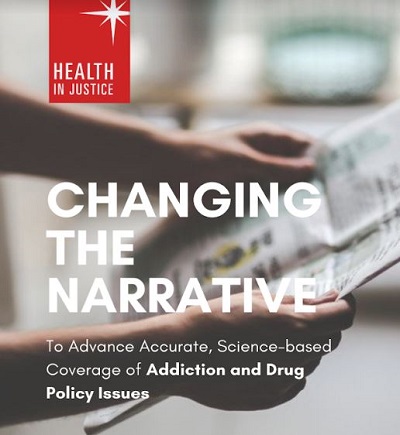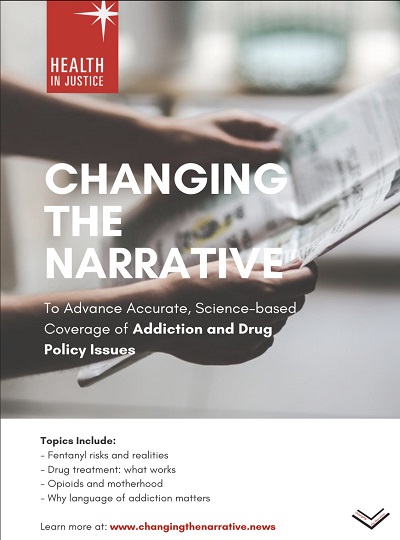The health care gold standard of achieving remission from addiction or substance use disorder is not the absence of substance use, but the absence or presence of substance use such that substance use does not result in notable harm to self, others, or society. Nine out of ten Americans use substances without noticeable harm.
In contrast, the gold standard of the criminal justice system is abstinence as evidenced by negative urine drug screen. As with most health conditions, during the time that treatment is attempting to help the person achieve remission, an individual is likely to display symptoms of the condition. With substance use disorder, that defining symptom is continuing to use substances despite adverse consequences.

This disconnect harms our outcomes. For health care professionals who treat people with substance use disorders, time after time, we and our patients and clients see clinical stabilization, patients and clients display the symptom of the illness for which we are treating them – use – and they’re incarcerating again, re-traumatizing and destabilizing them.
The arguments for “sanctions,” i.e. re-incarcerating drug court participants and people on probation or parole who test positive for illegal or banned substances are: 1) Using illegal substances is breaking the law and they should go to jail for that. 2) They committed crimes while using substances and they should go to jail for that. 3) They should be grateful to be in drug court or on probation/parole rather than in jail.
We, health care professionals who treat people with addiction, need to continue to educate the criminal justice system that our patients and clients are not yet cleared for medical release. Addiction is a medical illness for which people may need emergency, then urgent, then long-term care. Even wounded armed robbery suspects are taken to the hospital first. Only when they are medically cleared for release are they taken to jail. Then due process begins. In contrast, people with substance use disorder are a uniquely persecuted population, particularly when they participate in drug court. They are presumed guilty of crimes and incarcerated over and over again – without due process – for having wounds.
Our current system overrules medical and public health best practices in favor of criminal justice mandates. In terms of dollars and cents, the criminal justice system is robbing health care professionals of our outcomes which are increasingly required by payers for reimbursement. If not for humanitarian reasons, then for economic reasons, health care professionals must take back what happens to people with substance use disorders from the criminal justice system.
If we must have drug courts – although the data overwhelmingly denies their effectiveness – they need to be transformed into aftercare treatment courts capable of receiving patients and clients who are still weakened and vulnerable as they attempt to recover from this potentially life-threatening medical illness.
For further reading
- Here is my full report on drug courts, approximately 4,500 words.
- Here is the commentary on drug courts from Changing the Narrative.
- Here are highlights from my interview with Changing the Narrative on the false beliefs underpinning drug courts.
- Here are some steps one might take to challenge the narrative about drug courts.
- Here are excerpts from my full report, several of which I referred to in the Changing the Narrative interview.
- Here is my editorial on drug courts: Drug Courts Could Improve Their Stats If They Allowed Evidence-Based Policies.
- Here is the category that contains all the posts on drug courts.
Image: iStockphoto
Anne Giles, M.A., M.S., L.P.C., is a counselor in private practice in Blacksburg, Virginia.
The views expressed are mine alone and do not necessarily reflect the positions of my colleagues, clients, family members, or friends. This content is for informational purposes only and is not a substitute for medical or professional advice. Consult a qualified health care professional for personalized medical and professional advice.

 Below is a summary of my introductory and concluding remarks, a link to references, and other follow-up information.
Below is a summary of my introductory and concluding remarks, a link to references, and other follow-up information.

